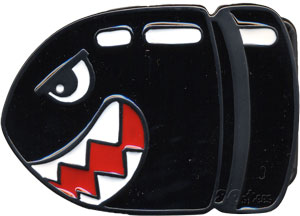|
|
Continue reading ETI Views and News at
econtech.com,
or download a
printer-friendly version.

Follow us on Twitter @EconAndTech
|
|
Is the iPhone 5 Sprint's silver bullet?
|
|
 Sources close to Sprint have suggested that the number three wireless carrier in the US will begin selling Apple's newest iPhone sometime in mid-October. The release of the new iPhone is major news: searching for "iPhone 5" returns nearly 2-billion hits on Google, and this version of Apple's wildly successful smartphone will be the first to be released under Apple's new CEO Tim Cook. It is certainly big news for Sprint, which has, up until now, watched from the sidelines as first AT&T and then Verizon added the device to already strong product lineups. Sprint has sat on this particular sideline for more than four years – four years marked by subscriber attrition, financial losses, and failed attempts at integrating the Nextel iDEN network. So while the iPhone is certainly "big" news for Sprint, it's unclear whether the new device will be Sprint's silver bullet, or even good news.
Sources close to Sprint have suggested that the number three wireless carrier in the US will begin selling Apple's newest iPhone sometime in mid-October. The release of the new iPhone is major news: searching for "iPhone 5" returns nearly 2-billion hits on Google, and this version of Apple's wildly successful smartphone will be the first to be released under Apple's new CEO Tim Cook. It is certainly big news for Sprint, which has, up until now, watched from the sidelines as first AT&T and then Verizon added the device to already strong product lineups. Sprint has sat on this particular sideline for more than four years – four years marked by subscriber attrition, financial losses, and failed attempts at integrating the Nextel iDEN network. So while the iPhone is certainly "big" news for Sprint, it's unclear whether the new device will be Sprint's silver bullet, or even good news.
In the February 2011 issue of Views and News we discussed the announcement that Verizon would begin to carry the iPhone 4. Issues such as cross-carrier compatibility, 3G vs 4G speeds and the presence of successful Android handsets in the marketplace led us to believe that the only sure winner in expanding the iPhone handset market was Apple. Six months later, the same appears to be true. And some are speculating that the iPhone might even be a burden for Sprint as it challenges AT&T's proposed takeover of T-Mobile.
Sprint, the iPhone, and "unlimited" data
Even before Verizon gained access to the iPhone, AT&T had grandfathered its unlimited data plans, opting instead for capped plans with overage charges. When Verizon entered the market with the iPhone, it made it quite clear that unlimited data plans were still available at Verizon. This now appears to have been a short-lived ploy to steal market share away from AT&T, as Verizon's unlimited plans have already been axed. This gives Sprint a chance to become the only remaining carrier with iPhones and unlimited data plans. This might provide a small boost to Sprint, but AT&T didn't suffer catastrophic losses when Verizon advertised its unlimited iPhone deals just six months ago.
The industry standard practice of locking wireless customers into two-year contracts will likely keep customers locked-in to their current carrier. Facing early termination fees of as much as $350, customers may not find the appeal of unlimited data to be worth the expense of terminating their contract simply to switch carriers.
The prevalence of family plans may also make it difficult for consumers to switch to Sprint. While the carriers do not disclose such statistics publicly, ETI research has determined that a substantial portion of all non-business wireless subscribers are on family plans. Since termination fees are applied per phone, an AT&T or Verison family plan customer considering switching carriers could be hit with termination charges approaching $1,000. Limiting the defection to only the plan's iPhone user(s) would reduce termination charges, but splitting up the family across two carriers would mean higher monthly fees.
4G: LTE, WiMAX or both?
There are many rumors surrounding the potential technical specifications of the iPhone 5, but it seems hard to believe that Apple would release another device that was not 4G capable. The iPhone 4 was already late to the 4G party and Verizon has been quite successful with its 4G LTE rollout and device lineup. AT&T just announced its own first 4G handset in advance of AT&T's 4G LTE network debut. It seems likely that the iPhone 5 will have some sort of LTE capability. Sprint was first to market with 4G service, but had opted to adopt a different technology than LTE – WiMAX. Given that Apple already designed 3G CDMA functionality into its phone for Verizon, conversion of the 3G phone for Sprint should be relatively trivial. But no other major carrier has rolled out a WiMAX 4G network, so it would be a significant accommodation from Apple to include 4G WiMAX capability. If Sprint's iPhone does not come equipped for 4G, it might as well come dead on arrival. Otherwise, the only way to achieve 4G data speeds on the Sprint iPhone will be to have additional data service from Sprint on a 4G WiFi data card. This kludgey setup could hardly be a selling point for Sprint.
Some rumors have suggested that the iPhone 5 will be a so-called dual-mode device, running on both GSM and CDMA networks. If the phone came unlocked, that would certainly represent a democratization of consumer handsets. But it still remains unclear whether Sprint's version of the handset would fall into this category, if indeed WiMAX compatibility was more than just a software setting on the device.
Bigger picture: Sprint vs. AT&T/T-Mobile
The fate of AT&T's merger application at the FCC remains unknown, but Sprint has clearly been the biggest opponent of the merger. Sprint has suggested that the merger would lead to 1980s style monopoly conditions, and that under no circumstances should the merger be allowed to proceed. One of the many arguments that can be made against AT&T is that, for quite some time, it had foreclosed the other carriers, especially Sprint, from selling the iPhone (having struck a deal with Apple to be the exclusive provider of the iPhone in the US for more than three years), leaving the distant number three carrier with a gaping hole in its handset lineup. By gaining access to the iPhone 5 in October, this argument loses some of its steam at perhaps an inopportune moment as the FCC continues its analysis of the merger.
While Sprint's arguments that AT&T would have monopsony power in the handset market would remain true, the poster child of this market power, the iPhone, would land squarely in Sprint's lap – at least for now. Given Sprint's adamant concern over the merger, losing any talking point could do more harm than good.
And the winner is:
It seems hard to imagine that despite Sprint's best efforts to turn itself around, the only remaining stumbling block would be access to Apple's iPhone. Sprint may stand to gain from selling the device, along with more lucrative data plans, but long term success will not hinge on the sale of the iPhone, especially if Sprint was forced into any extraordinary financial concessions in order to even step up to the negotiating table with Apple.
As we concluded in February, there will be only one clear and unambiguous winner stemming from the wide, multicarrier release of the iPhone 5, and that is Apple. With a wider audience, upgraded OS, and new hardware, the maker of the $600+ device doesn't need Sprint to be wildly successful with the iPhone 5.
For more information, contact Colin B. Weir at cweir@econtech.com
Read the rest of Views and News, August 2011.
|
|
|
|
About ETI. Founded in 1972, Economics and Technology, Inc. is a leading research and consulting firm specializing in telecommunications regulation and policy, litigation support, taxation, service procurement, and negotiation. ETI serves a wide range of telecom industry stakeholders in the US and abroad, including telecommunications carriers, attorneys and their clients, consumer advocates, state and local governments, regulatory agencies, and large corporate, institutional and government purchasers of telecom services. |
|
|